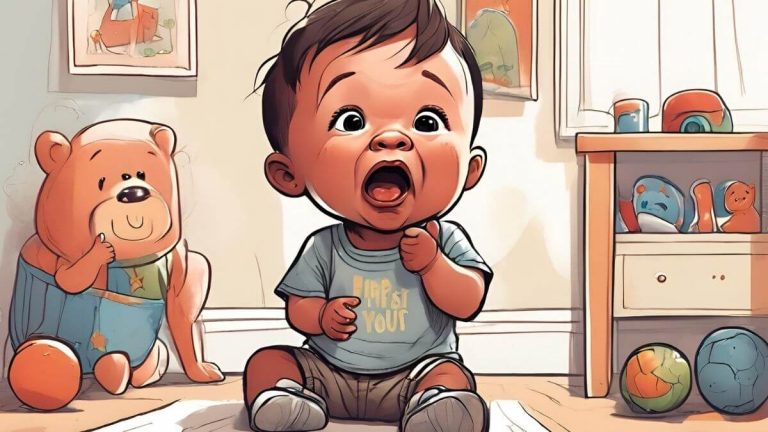Speech and language development in toddlers is an exciting and critical part of growth. Parents and caregivers will be much more informed and better helped in their efforts to properly care for the child if they know and understand the speech milestones for 3-year-olds. This article looks at what is expected of a 3-year-old regarding speech and language milestones, what influences them, and how to support and seek help if necessary.
What Are Speech Milestones?
Speech milestones are specific indicators of a child’s speech and language development. These milestones help track progress and ensure that children develop communication skills at an expected rate. They include the number of words a child knows, their ability to form sentences, and their overall speaking ability. Monitoring these milestones can help detect any issues early on.
The Speech Milestones for 3-Year-Olds
By age three, most children typically achieve several important speech milestones:
- Vocabulary: A 3-year-old usually has a vocabulary ranging from 200 to 1,000 words. They can identify everyday objects and use common descriptive words.
- Sentence Formation: Children can form small sentences of about 3-4 words. They can communicate simple ideas and ask questions.
- Pronunciation Clarity: Not all words are pronounced perfectly, but a 3-year-old’s speech is usually clear enough to be understood by family and caregivers.
Related Reading: Language Skills for 3-Year-Olds
Language Development at Three
Language development includes expressive language (what the child can say) and receptive language (what the child can understand). Three-year-olds can usually:
- Understand simple directions and follow familiar commands.
- Listen to short stories and repeat simple stories themselves.
- Use pronouns (me, you, we) and some plurals.
Factors Affecting Speech Development
Several factors may affect a child’s speech development:
- Genetic Factors: Family history of speech and language delays can influence development.
- Environmental Factors: The quantity and quality of verbal interaction between parents and caregivers matter.
- Health Issues: Hearing problems or chronic ear infections can lead to speech delays.
How to Encourage Speech and Language Development
Parents and caregivers can encourage speech and language development by:
- Reading and Telling Stories: Regularly reading books and telling stories can increase vocabulary and support language skills.
- Modeling: Let the child see and hear you speaking to them, each other, and other people.
- Positive Reinforcement: Praise and encourage your child when they use new words or form sentences.
- Activities and Games: Engage in activities that encourage language skills, such as playing “name the object,” describing pictures, or playing make-believe.
Related Reading: Influence of Reading
When to Seek Professional Help
It’s important to know the red flags that could signal a speech or language disorder. Consider getting help if your child:
- Is three years old and uses fewer than 50 words.
- Tries to talk but can’t form complete sentences.
- Has speech that is not understood by strangers most of the time.
- Doesn’t seem interested in playing with others or responding to what they are asked to do.
Early intervention is critical for treating speech and language delays. Professionals, such as speech-language pathologists, can assess the situation and provide appropriate support.
Q&A
What are the everyday speech milestones for a 3-year-old?
- Use 3-to-4 word sentences.
- Follow basic instructions.
- Name everyday objects and use possessive pronouns like “I,” “you,” and “we.”
- Build a vocabulary of 200 to 1,000 words.
- Learn descriptive words like big/little and up/down, and question words like how/where/what and why.
What are some ways that I can encourage my 3-year-old to talk more?
- Talk to your child regularly and clearly.
- Read together and ask them to describe pictures or parts of the story.
- Sing with your child to support rhythm and pronunciation.
- Encourage pretend play with toys or dolls.
- Give your child time to speak without hurrying them.
What to do if your 3-year-old cannot achieve speech milestones?
- Consult a pediatrician to check for any medical issues, including hearing loss.
- Seek a speech-language pathologist for an assessment.
- Participate in speech-developing activities.
- Keep your child in a language-rich environment by talking, reading, and singing to them regularly.
Are there usual speech problems for 3-year-olds that I must be aware of?
- Trouble with articulation (pronouncing certain sounds correctly).
- Stuttering (common as language skills develop).
- Limited vocabulary or difficulty forming sentences.
- Delayed speech (speaking fewer words than expected).
How do I determine whether it is a delay in speech or a standard speech development variant?
- Frequency and clarity of speech: A 3-year-old should be understood by familiar listeners 75% of the time.
- Consistent progress: Is there a steady improvement in speech and language skills?
- Interaction with others: Observe how the child converses with peers and family.
- Response to interventions: If the child responds positively to activities, it might be a developmental difference. Professional consultation can help diagnose issues.
Understanding and following speech milestones for a 3-year-old ensures healthy language development. If you think your child is not meeting their speech and language development milestones, early professional intervention can help.
References:


